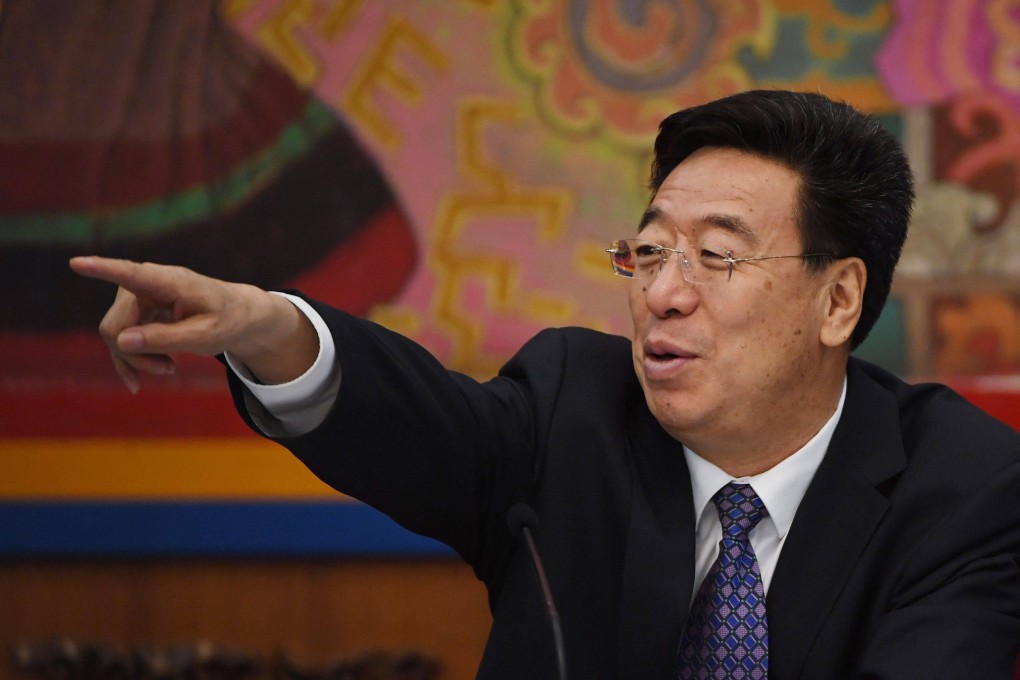US sanctions Chinese officials over alleged Tibet human rights abuses and businessmen over illegal fishing claims
- The human rights move targets Wu Yingjie, Beijing’s boss in Tibet from 2016 to 2021, and Zhang Hongbo, the region’s police chief since 2018
- The sanctions come despite a relative easing of tensions between the superpowers after Joe Biden and Xi Jinping met last month in Bali

The United States announced sanctions on Friday against Chinese government officials for the alleged torture of ethnic Tibetans, and, separately, against Chinese entities and conglomerates responsible for alleged illegal fishing operations.
Beijing denounced the moves ahead of the official announcements.
The US Treasury Department froze the US assets of – and blocked transactions with – Wu Yingjie, the Chinese government’s top official in Tibet from 2016 to 2021, and Zhang Hongbo, identified as the Tibetan region’s police chief since 2018.
The sanctions by the Biden administration were announced along with similar measures taken against entities in Russia, North Korea, Iran and other countries, all timed for the United Nations’ International Anti-Corruption Day and the eve of its Human Rights Day.
